
Vendors who don’t follow the federal Fair and Accurate Credit Transactions Act, known as FACTA, make it possible for criminals to steal credit card numbers from receipts.
If too much information is printed on a receipt, identity thieves and fraudsters may be able to get a credit card number from a receipt.
For example, if an identity thief is able to get multiple receipts containing different digits of a credit card number, they may be able to piece them together to form a complete, or mostly complete, credit card number.
Additionally, if a receipt shows a card’s expiration date, thieves may be able to use this information to authenticate fraudulent transactions.
Luckily, there are laws to protect consumers against fraud and credit card theft. The Fair and Accurate Credit Transactions Act (FACTA) was passed in 2003 as an amendment to the Fair Credit Reporting Act. FACTA standardizes how much credit card information that can be shown on an electronically printed receipt.
After the law was initially passed, vendors were given a few years to update machines to be FACTA compliant.
What are FACTA rules?
FACTA prohibits vendors from printing more than the last five digits of a credit card number. If any other digits are shown, even if there are only five digits visible, vendors may be violating FACTA. Some examples of credit card FACTA violations include :
- Example 1: 1111 22** **** 4444
- Example 2: 1111 **** **** 4444
- Example 3: **** **** **44 4444
FACTA also prohibits the printing of any expiration date information. This information is commonly used to authenticate online transactions. Expiration dates may be displayed in a number of different ways, so here are some examples of what to look out for:
- Example 1: EXP: 03/17
- Example 2: EXP: 03/2017
- Example 3: EXP: 032017
- Example 4: EXP: 0317
- Example 5: Expires: 0317
- Example 6: Exp Date: 03/17
- Example 7: Exp Date: 03/31/17
- Example 8: EXPIRY: 03/17
- Example 9: 03/17
- Example 10: 0317
- Example 11: Date 03/**
- Example 12: **/17
- Example 13: 2017/03
FACTA rules are typically upheld through a process called truncation. According to Tech Target Network, truncation replaces the digits of a card number with symbols such as * or # in order to protect consumer data. These symbols act as placeholders in the computer system while also hiding consumer information on printed receipts.
These rules apply to any electronically printed receipt, including those printed at a kiosk, restaurant or retailer. FACTA rules do not, however, apply to written receipts.
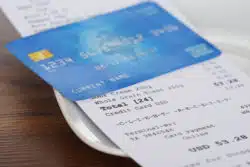 What to do if you think your data was stolen
What to do if you think your data was stolen
If you’re a consumer who believes that your data was stolen because a company provided too much information on a credit card receipt, you have two issues to consider going forward.
First, if your identity was already stolen, this is a great time to start monitoring your credit. Ensure that you report any errors or issues of theft to the major credit bureaus. Keep a close eye on all your bank accounts so you can flag instances of identity theft immediately.
In addition to being mindful of the potential for having your information stolen, you might also have grounds for a legal claim based on too much credit card information printed on a receipt. Despite the fact that the law is very clear on what companies can and cannot list on receipts, it takes just one company to print more than the truncated information to have your information exposed.
Before throwing a receipt out, it’s a good idea to look closely at it to make sure that only properly truncated data is visible.
Companies can be held accountable for FACTA violations even if someone’s identity has not been stolen. More consumers than ever before are taking legal action after learning that laws have been violated by a business printing personal information on credit card receipts.
Is it true that Major League Baseball teams violated FACTA?
Some consumers have claimed that Dodgers Stadium in Los Angeles, as well as other Major League Baseball stadiums across the country, may have violated FACTA by printing too much information on its receipts.
In October 2018, a man filed a class action lawsuit against Major League Baseball and the Los Angeles Dodgers after his receipt for four tickets allegedly contained the man’s credit card expiration date and the card’s last four digits. The addition of the expiration date allegedly constituted a FACTA violation.
Filing a FACTA lawsuit
A growing number of consumers are coming forward with allegations of FACTA violations. If you believe that your information has been displayed on a receipt in violation of FACTA, potentially compromising your accounts or identity, you may be able to file a FACTA lawsuit and pursue compensation.
It’s not just your own financial information and identity that you protect when you call out FACTA violations, but many others as well—in some cases, thousands of other customers. To satisfy FACTA regulations, businesses use machines programmed to comply with FACTA rules. If one receipt displays a violation, then it’s likely that every other receipt from that machine is also affected by the same error. This kind of mass FACTA violation situation can pave the way for a substantial class action lawsuit settlement.
Filing a lawsuit can be a daunting prospect, so Top Class Actions has laid the groundwork by connecting you with an experienced attorney. Consulting an attorney can help you determine if you have a claim, navigate the complexities of litigation, and maximize your potential compensation.
Whenever you get a receipt back, remember to check your card information—the number and the expiration date—to ensure that there have been no FACTA violations. If you do spot a FACTA violation, keep any relevant receipts, which will serve as evidence to support your claim.
This article is not legal advice. It is presented
for informational purposes only.
ATTORNEY ADVERTISING
Top Class Actions is a Proud Member of the American Bar Association
LEGAL INFORMATION IS NOT LEGAL ADVICE
Top Class Actions Legal Statement
©2008 – 2026 Top Class Actions® LLC
Various Trademarks held by their respective owners
This website is not intended for viewing or usage by European Union citizens.



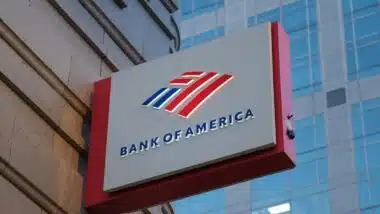
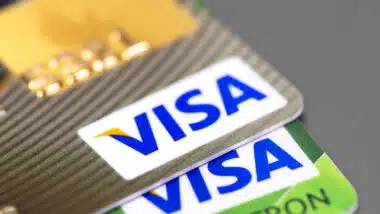
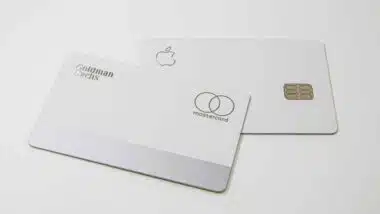
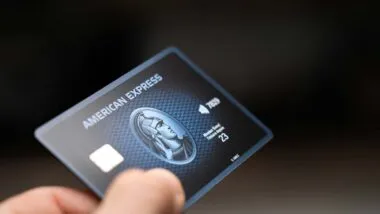


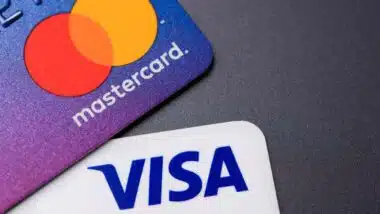
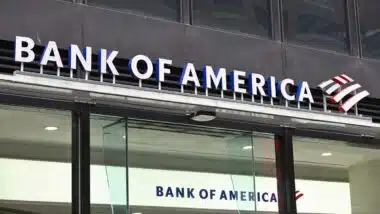

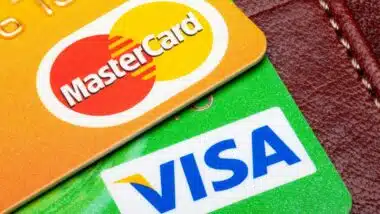
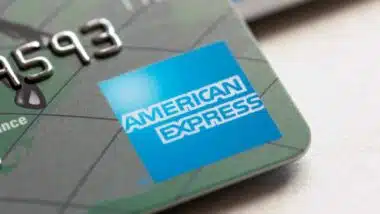
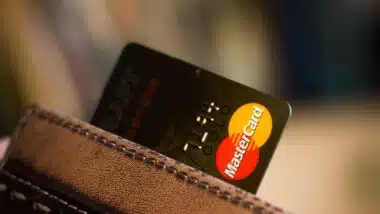
20 thoughts onCan someone get your credit card number from a receipt?
Awww dang another way to hack/take over/infringe on our data and finances! STOP IT!!!
Old Navy put 10 of my credit card numbers on my receipt.
Add me too please !
ADD ME TO THE LAWSUIT
ADD ME
Add me
Please add me
Add me
Add me